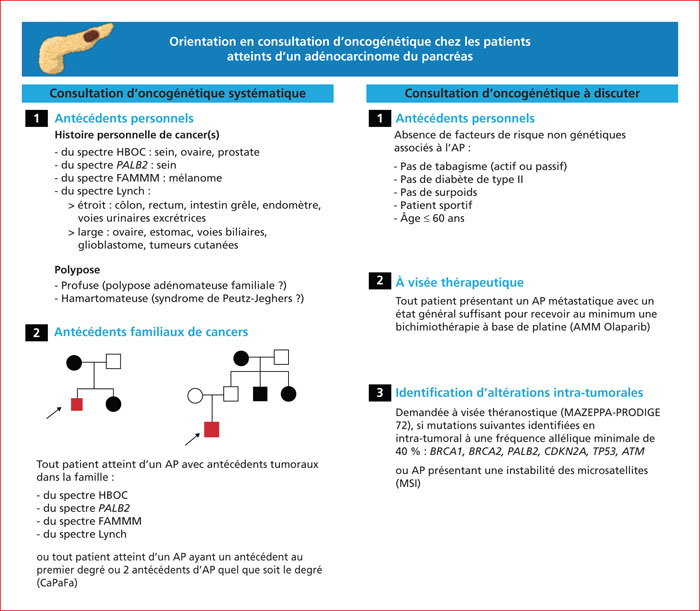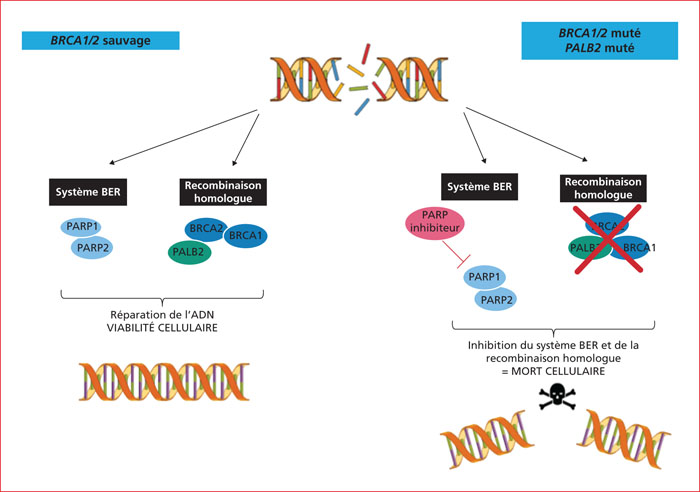Hépato-Gastro & Oncologie Digestive
MENUMain hereditary susceptibility syndromes to pancreatic adenocarcinoma: Diagnosis and screening Volume 28, issue 7, September 2021
- Key words: genetic counseling, pancreatic adenocarcinoma, hereditary predispositions to pancreatic adenocarcinoma, screening
- DOI : 10.1684/hpg.2021.2210
- Page(s) : 840-8
- Published in: 2021
Pancreatic adenocarcinoma is a public healthcare problem due to its increasing incidence rate (second most frequent digestive cancer in France), and its high lethality in spite of numerous therapeutic strategies explored (overall survival <10% at 5 years).
Among all cases of pancreatic adenocarcinoma, it is estimated that 5% to 10% are associated with cancer predisposition syndromes due to the presence of germline pathogenic variants in some tumor suppressor genes. The most well-known predisposition syndromes are Peutz-Jeghers syndrome (STK11 gene, relative risk of 132 compared to the general population), hereditary breast and ovarian cancer predisposition syndrome (BRCA1 and BRCA2 genes) or Lynch syndrome (constitutional alteration of one of the genes belonging to the DNA mismatch repair (MMR) system (MLH1, PMS2, MSH2, MSH6).
The identification of these patients at high risk of developing pancreatic adenocarcinoma is crucial because early detection of pancreatic adenocarcinoma is considered to be the most effective way to improve patient survival. In these at-risk populations, screening strategies for pancreatic adenocarcinoma are mainly based on pancreatic MRI and endoscopic ultrasonography. Likewise, the identification of some germline pathogenic variant may have a major therapeutic impact in patients with metastatic pancreatic adenocarcinoma (BRCA1/BRCA2 germline mutations and PARP inhibitors, MMR gene germline mutations and immune ckeckpoint inhibitors, clinical trials). Although all of these mutations are rare, the role of genetic counseling in the management of patients at high-risk for or affected by pancreatic adenocarcinoma is crucial.



